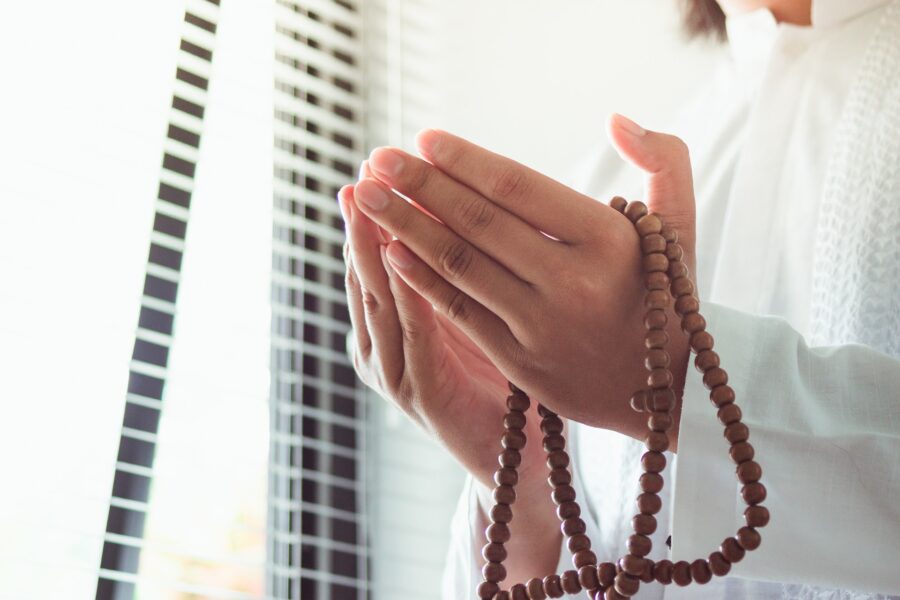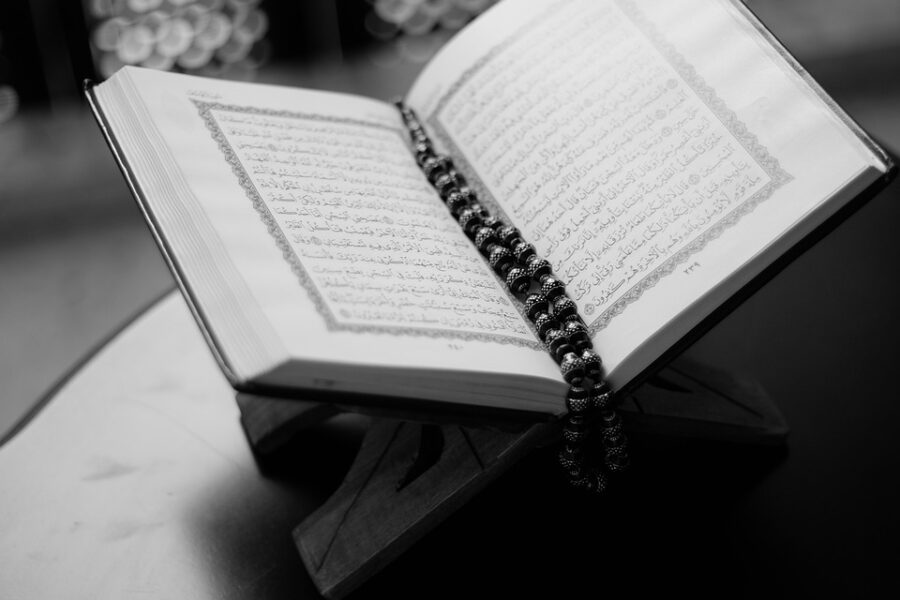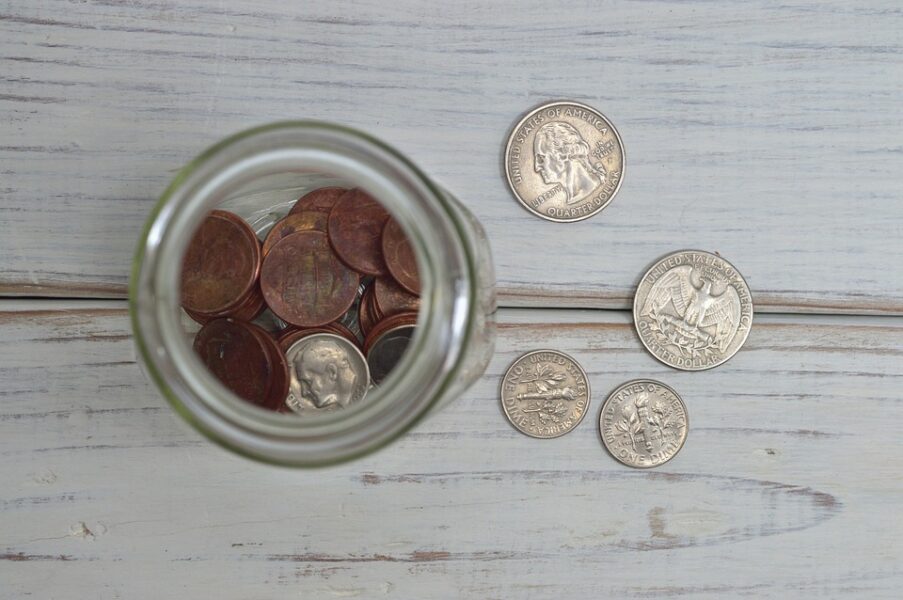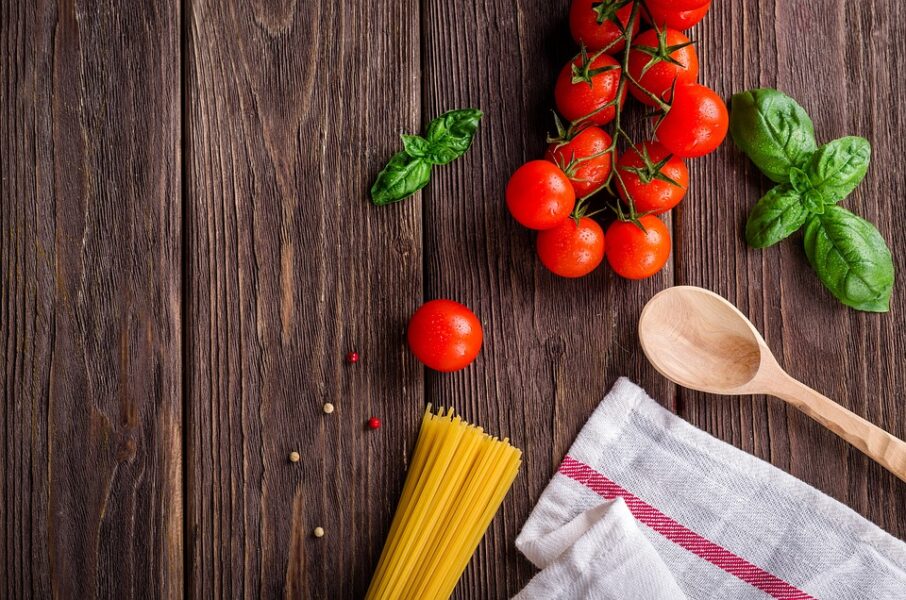With the cost of living crisis and an inflation at a 40 year high, many of us are paying more attention to our finances, and rightfully so. You may have come overfamiliar with spreadsheets or downloaded budgeting tools. Some may have started a side hustle, or considered turning one of their hobbies into a business idea.
There are plenty of blogs, telling you ways on how to make money, and side hustles you can get your teeth stuck into, and ways to save on the pennies, but to help you navigate the wave of the increase in the cost of living, we have prepared 14 Ways to Increase Your Rizq and Put Barakah in Your Wealth.

1. Rely Upon Him
Blessings and provisions do not only reach us due to actions of the tongue and our limbs, but primarily begin with the actions of our hearts. One of these is having complete trust and dependence upon Allah, knowing that He is ar-Razzaq, the Only and Ultimate Provider, the source of all the blessings we enjoy. By having complete reliance upon Him, He promises to provide for us.
“If you would trust in Allah as He truly should be trusted, He would surely provide for you as He provides for the birds. They set out in the morning with empty stomachs and return in the evening with full stomachs.” (Ibn Majah)
2. Cultivate gratitude
Another action of the heart, showing gratitude is one of the most beloved forms of worship, and draws us closer to Him.
“Therefore, remember Me (by praying, glorifying). I will remember you, and be grateful to Me (for My countless favors on you) and never be ungrateful to Me.” (Qur’an, 2:152)
We should be grateful for what Allah has bestowed us with, and strive to appreciate every blessing we have in our lives. We far too often take for granted what we have, and don’t take the time to reflect on the many gifts we have been given.
We are also reminded, that if we show gratitude, our blessings will increase.
“And [remember], when your Lord proclaimed, ‘If you are grateful, I will surely increase you [in favour]; but if you show ingratitude, indeed, My Punishment is severe.’” (Qur’an, 14:7)
There will always be trials in life, but by changing our mindset, we will be able to focus on the overwhelming number of blessings that overshadow them. By showing contentment in what has been decreed, Allah will increase us in good and bless us in that.
“Verily, Allah will put His servant to trial in what He gives him. Whoever is content with what Allah has apportioned for him, then Allah will bless him in it and expand it. Whoever is not content, he will never be blessed in it.” (Ahmad)
Try journaling or using one of the many gratitude apps, to start building this habit.

3. Seek Forgiveness
One of the simplest ways we can increase our rizq is through seeking forgiveness for our sins and shortcomings.
Nuh (as) instructed his people to seek Allah’s forgiveness, assuring them that as a result He would bestow material blessings upon them.
“Ask forgiveness from your Lord, verily, He is Oft Forgiving; He will send rain to you in abundance. And give you increase in wealth and children, and bestow on you gardens and bestow on you, rivers.” (Qur’an, 71:10-12)
Ibn al-Qayyim mentioned istighfar (seeking forgiveness) amongst the most effective adhkar that lead to an increase in provision and warding off hardship.
4. Be God-conscious
Having belief in Allah and taqwa in general, is one of the causes for His Bounty to be bestowed upon a person. He says,
“And if only the people of the cities had believed and feared Allah, We would have opened upon them blessings from the heaven and the earth; but they denied [the messengers], so We seized them for what they were earning.” (Qur’an 7:96)
He also inspires great hope in the heart of a believer with His Promise for those who are dutiful to Him.
“…And whosoever fears Allah and keeps his duty to Him, He will make a way for him to get out (from every difficulty). And He will provide for him from (sources) where he does not expect…” (Qur’an, 71: 2-3)
5. Abandon Sins
The natural consequence of being God-conscious and seeking forgiveness is to abandon sins. One of the consequences of our sins is that they deprive us of provision in the worldly life, as the Prophet (saw) said: “A man is deprived of provision because of the sins that he commits.” (Ibn Majah)
When we face difficulties in life, be it in straitened income, our interpersonal relationships, in our work or home life, we should reflect on our actions and consider where we are falling short.
“Whatever of good reaches you, is from Allah, but whatever of evil befalls you, is from yourself…” (Qur’an, 4:79)

6. Devote Yourself to Him
It is unsurprising that just as sins cause provision to be blocked, by devoting ourselves to Allah, His worship and servitude, the financial and psychological hardships we face will be uplifted.
The Prophet (saw) said, “Allah says, ‘O son of Adam! Take time out to constantly worship me, I will fill your heart with contentment, and remove your poverty, and if you do not do so. I will make your hands constantly occupied but I will not remove your poverty.’” (Ahmad)
He (saw) also told us that “…nothing increases one’s lifespan except good deeds.” (at-Tirmidhi)
7. Establish Prayer
We know that the first deed we will be asked about on the Day of Judgement will be our prayers; if they are in order, then the rest of our deeds will be.
In a hadith qudsi, “Allah the Exalted says: ‘O Son of Adam, do not be heedless of praying 4 rakʿahs for Me in the beginning of your day and (as a result) I shall be your sufficiency at its end.’” (Abu Dawud)
That Allah will “suffice” us means that He will protect us from all harm, misguidance, sinfulness, alleviate all our worries and forgiveness for our shortcomings. Scholars differed over whether these 4 units of prayer refer to the 2 sunnah and 2 fardh raka’at of fajr prayer, or whether it relates to 4 units of duha prayer, which is prayed from 20 minutes after the sun has risen until before noon.
8. Call Upon Him
One of the means Allah gave us to attain provision is to ask for His Favours and Bounty, having complete conviction that He is the Sustainer and Provider, and is the only One we should ask and whose Aid we should seek.
The Prophet (saw) would supplicate, after he completed his fajr prayer, “O Allah, I ask You for knowledge which is beneficial and sustenance which is good, and deeds which are accepted.” (Ibn Majah)
He (saw) would also pray for contentment in what Allah had given him: “O Allah, make me content with what You have provided for me, bless me in it, an appoint good for me in everything I do not have.” (ad-Dawat al-Kabir)
Du’a itself “is ibadah” and is one means to overturn what Allah has decreed:
“Nothing can change the Divine decree except du’a.” (Ahmad)
We should pay particular attention to the times and places in which du’a is most likely to be accepted, such as when we are in prostration, between the adhan and iqamah, facing the qiblah and when it is raining.
9. Uphold Ties of Kinship
Allah also has given us a means to increase our provision through our relationships with the rest of His creation. This is another opportunity to demonstrate our taqwa and devotion to Him practically in our lives. We do not choose our relatives, and we can often find we are tested by those closest to us. But by keeping the ties of kinship, our provision can be increased.
“Whoever would like his provision to be abundant and his lifespan to be extended, let him uphold his ties of kinship.” (Bukhari)
10. Support The Vulnerable
One of the other ways we can increase our provision, through our relations with people is by supporting those in need.
“Seek out the vulnerable for me, for you are only given provision and divine support due to your care for the vulnerable.” (Abu Dawud)
We know that the poor and destitute in this life, will enter Paradise before the wealthy of the ummah, and we are encouraged frequently in the Qur’an and hadith to relieve the hardship of those in worse circumstances than ourselves.

11. Give Charity
One of the ways in which we can specifically assist those in need is through giving charity.
We have been assured by the Prophet (saw) that “Charity does not decrease wealth.” (Muslim), rather it brings blessings and purifies your wealth. Helping others will not only bring with it spiritual rewards, but also will make you feel uplifted and positive. Imam an-Nawawi explained that this means that our wealth will be blessed due to the charity we give, as well as harm being averted due to it. It also means that even if we seem worse off materially for a time, we will be compensated many times over, with the reward in the next life.
Allah reminds us many times in the Qur’an that whoever gives in charity will be recompensed manifold.
“Say: “Truly, my Lord enlarges the provision for whom He wills of His slaves, and (also) restricts (it) for him, and whatsoever you spend of anything (in Allah’s Cause), He will compensate it. And He is the Best of providers.” (Qur’an, 34:39)
He promises to multiply the reward up to 700 times for giving in charity in His Way:
“The likeness of those who spend their wealth in the Way of Allah, is as the likeness of a grain (of corn); it grows seven ears, and each ear has a hundred grains. And Allah multiplies [His reward] for whom He wills. And Allah is All-Sufficient for His creatures’ needs, All-Knower.” (Qur’an, 2:261)
12. Keep It Halal
You should ensure your income is obtained in a halal way, per the guidelines of Islam, and is both ethical and moral. This is not only in terms of the way you earn a living, but also whom you work for, and how it is sourced.
The Prophet (saw) explained the importance of conducting ourselves with integrity and transparency when it comes to business. “The two parties of a transaction have the right (to annul the contract) as long as they do not separate (from each other). So, if they were truthful (to one another), and honest in explaining (the defects of an item), then they will be blessed in their transaction. But, if they lied, and hid (the defects of an item) then the blessings of their transaction are destroyed.” (Muslim)
The companion, Ibn Abbas (ra) warned of the consequences of taking prohibited means: “There is no believer or sinner but that Allah Almighty has decreed his provision from the lawful. If he is patient until it comes to him, Allah will give it to him. If he becomes anxious and consumes something from the unlawful, Allah will decrease his provision from the lawful.” (Hilyat al-Awliya)

13. Eat Together
We can look at ways to increase our income and save pennies, but we can also consider how to bring barakah back into our homes. Eating together has both spiritual and social benefits. We should encourage our family and friends to share our meals together, with our spouses or children, to bring barakah into our homes.
“Eat together and do not eat separately, as there is more barakah when eating in a group.” (Ibn Majah)
The Prophet (saw) explained that when we eat together, the blessing in the food increases and many more mouths can be fed than we may anticipate.
“The food of one person suffices for two, the food of two persons suffices for four persons, and the food of four persons suffices for eight persons.” (Muslim)
Similarly, when we eat we should observe the etiquettes of the Prophet (saw), such as eating from what is in front of us.
“Blessing descends upon food in its middle, so eat from the sides of the vessel and do not eat from its middle.” (Abu Dawud)
We should also invoke blessings before and after we eat, as the Prophet (saw) did.
14. Spread Greetings of Peace
Another means to increase the blessings in our home, is ensuring we give greetings of peace when we enter. The Prophet (saw) described such a person as being in the care and protection of Allah. Subsequently, their needs will be met and they will receive their provision in this life, and they are promised Paradise in the next.
“There are three people who are in the security and care of Allah. While alive, they are provided sustenance and their needs taken care of, and when they pass away, Allah will grant them entry into Jannah; The person who enters his home and gives the greeting of salaam is in the care of Allah, the one who goes to the mosque is in the security of Allah and the one who goes out in the path of Allah is in the security of Allah.” (Ibn Hibban)